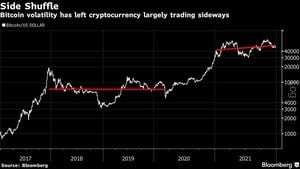The Japanese stock market faced significant decline recently, sparking concerns among investors about the future performance of various major firms. Notable companies such as Sumitomo Corporation and NTT have experienced downturns, leading to questions surrounding their growth trajectories and the overall health of the market.
Sumitomo Corporation, once poised for growth, has shown disappointing performance due to the slow pace of asset reallocation and restructuring of unprofitable segments. The company's share price has significantly decreased from its all-time high of ¥4,433 during May 2024 to the current range of around ¥3,200, representing nearly a 20% drop. Market analysts suggest this drop is tied to uncertainties surrounding the economic outlook, particularly for its core sectors of steel and resources, which are now facing pre-existing demands. To restore investor confidence, experts indicate the need for Sumitomo to present new strategies for investment and growth.
On the other hand, NTT has experienced its own set of challenges. Following its financial earnings report on February 7, 2025, the telecommunications giant saw its stock price continue to decline, even after implementing measures like stock splits to attract investors. Although NTT reported revenue growth of 3.4%, its operating profits saw a significant drop of 5.9%, and net profit suffered even more, plummeting by 15.9%. This stagnant performance, particularly following last year’s profitable factors following stock sales, has raised doubts among stakeholders about the company’s direction.
This downturn is supported by data indicating NTT's profits have suffered for the past two quarters, with the most recent report underscoring continued disappointing results. Following the announcement, investor sentiment highlighted concerns about whether NTT can rebound, as the challenging economic conditions prompt calls for the company to pivot to more sustainable profitability.
The negative trends are not isolated to just these two firms; larger market sentiments have also dampened broader trading strategies. On recent trading days, the Nikkei 225 index indicated substantial losses, reflecting widespread sell-offs triggered by the performance of U.S. technology stocks, particularly among semiconductor stocks like Nvidia and Broadcom, which have prompted apprehensions about potential oversupply in AI equipment investments. Consequently, trading firms within Japan’s stock exchange are observing significant pressure, with drops evident across various sectors.
Foreign exchange activity has also played a role, with the yen strengthening to approximately ¥150 per dollar. This shift has raised fears over export profitability, influencing stock declines particularly among automotive companies like Toyota.
Market analysts suggest these factors are contributing to pronounced uncertainty, with companies listed on global indices seeing similar declines like Fast Retailing and SoftBank Group. Reliance on sectors linked to technology is proving costly for many firms during this phase, reflecting the volatility of stock performances amid changing economic conditions.
Conversely, some firms defy the downturn, such as Chugai Pharmaceutical and Canon, which have seen their stock prices increase during this turbulent period. Notably, prominent investor Warren Buffett's interest in Mitsubishi Corporation has boosted investor confidence, indicating potential for select firms within the market to thrive.
Overall, these developments represent significant warning signs for investors considering potential risks within the Japanese market. The combination of economic uncertainties, declining performance metrics for key industry players, and the overarching pressure from global market trends creates complex challenges. Investors are encouraged to remain vigilant, reassessing their portfolios to navigate these challenging waters as they await clearer signals from corporate strategies and market recovery prospects.



